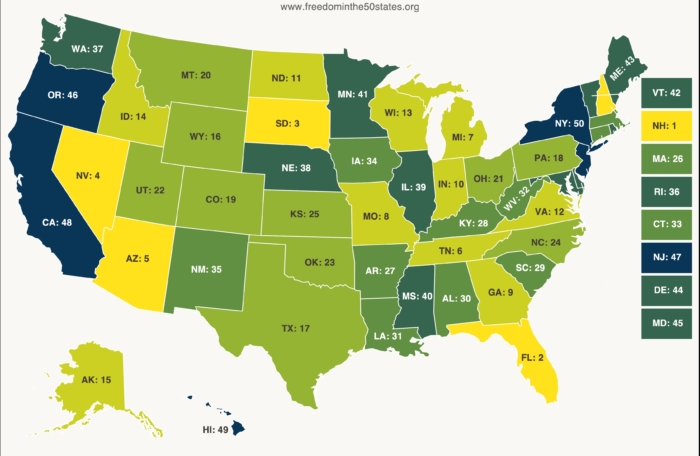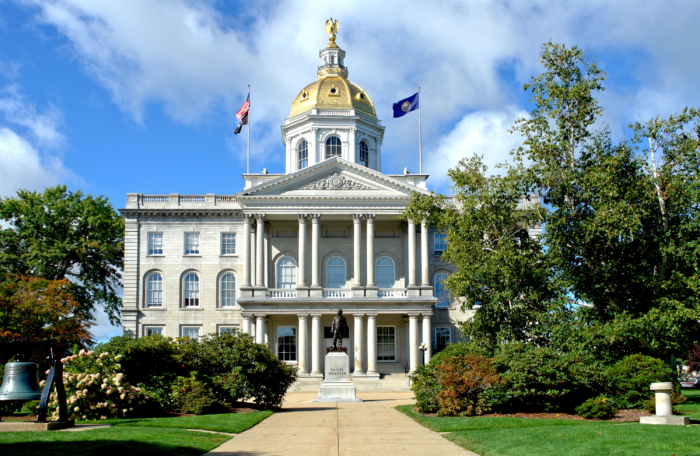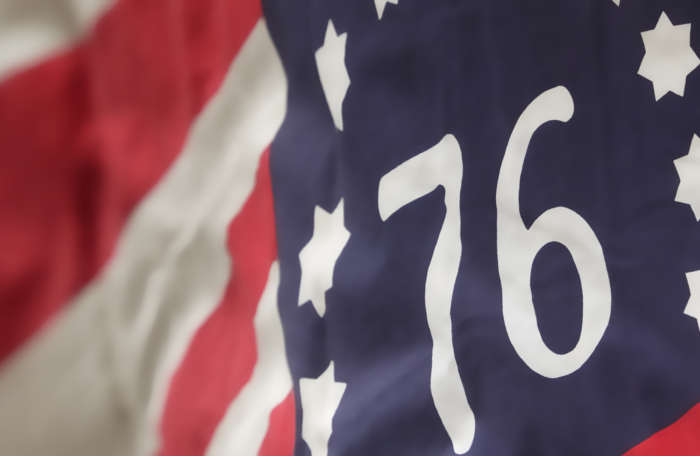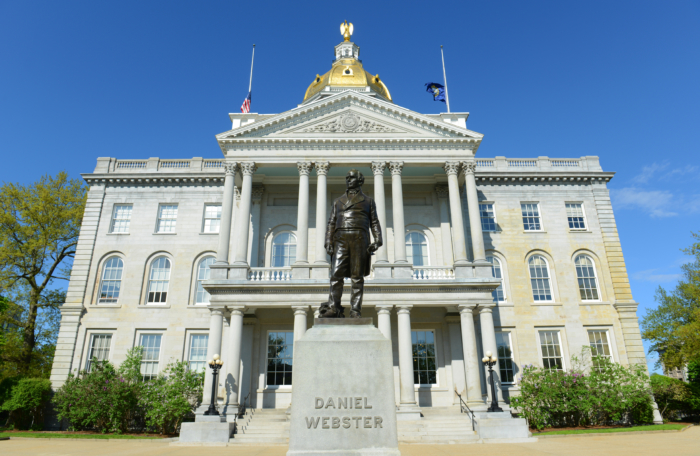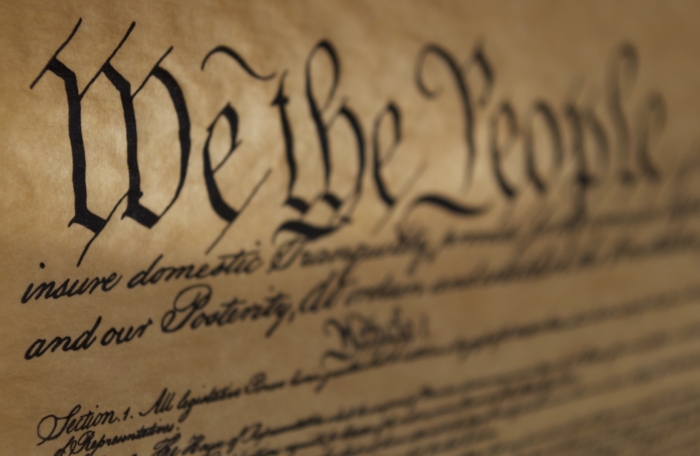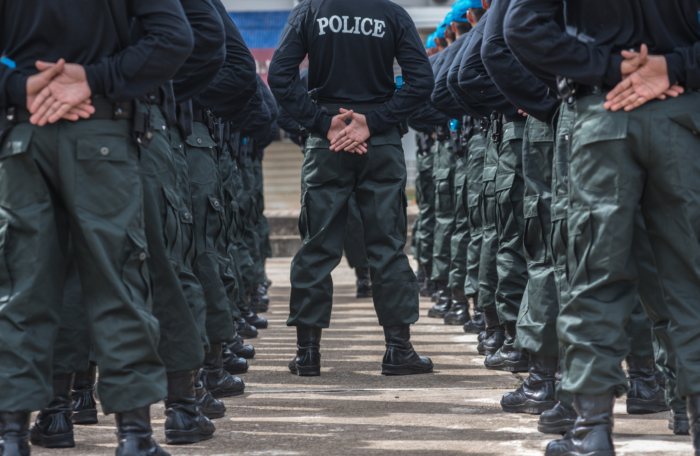“This is not a world to live at random in as you do.… Everything in this world is matter of calculation.”
— Thomas Jefferson, Oct. 12, 1786
Random chance is a constant feature of life on Earth, and for centuries it was a feature of human government. Kings and councils ruled with “arbitrary power,” as John Locke phrased it, subjecting the people to the whims of man just as they had previously been subject to the whims of nature.
Escaping the tyranny of randomness was, to Locke and the American Founders, a primary motivating factor of those who built republican governments.
“This freedom from absolute, arbitrary power, is so necessary to, and closely joined with a man’s preservation, that he cannot part with it, but by what forfeits his preservation and life together,” Locke wrote in the Second Treatise on Government.
By “absolute power,” Locke meant rule by whim, not by law. But the Founders feared that in a republican government majorities would write laws that codified their whims and impulses rather than the considered opinions of a broader coalition of lawmakers. Hamilton and Madison were particularly animated in warning against this.
In Federalist 9, Hamilton defined an “arbitrary” policy as that which is “supported neither by principle nor precedent.”
Laws, the Founders argued, should be the result of rational, careful consideration, not random or arbitrary decisions. And yet we see regularly, even in New Hampshire, the hasty passage of laws that codify rules chosen more or less at random rather than by principle or precedent, to use Hamilton’s metric, or calculation, to use Jefferson’s.
Some bills this session offer great examples of this illiberal practice.
House Bill 462 would raise the cap on damages for wrongful death loss of consortium claims. HB 462 originally would have eliminated the caps on financial damages that survivors can make for loss of consortium (companionship) in the wrongful death of a loved one. Caps exist to prevent runaway jury verdicts based on emotional testimony, as there’s no standard way to measure a loved one’s companionship value in financial terms. After strong opposition from the Business and Industry Association, insurers and others, the bill was amended to raise the caps from $150,000 to $500,000 for a spouse and $50,000 to $300,000 for a child or parent. Whatever one’s emotional reaction to these numbers, they are essentially random. Adjusting for inflation since the caps were imposed in 1997, $150,000 would now be $292,000, and $50,000 would be $97,000. Other states’ caps are all over the place, indicating a general lack of consensus on what a reasonable figure would be. Rather than join other states by randomly settling on a number that sounds good to some legislators, this is a perfect example of a policy deserving of more careful study and extended deliberation.
Senate Bill 308 would raise the state’s minimum wage from the federal $7.25 an hour to $15 an hour. Why $15 an hour? Why not $10, $20, or $17.93? The chosen number is not entirely random, as it’s the one settled upon by labor unions and national activists as sounding politically palatable. But it’s consistent with neither precedent nor principle nor rational calculation. A number chosen for political purposes is hardly a strong basis for choosing a wage floor that will eliminate job opportunities for lower-skilled Granite Staters. The overwhelming evidence from decades’ worth of national studies on minimum wage laws is that large increases that lift low-end wages above market rates eliminate employment opportunities for lower-skilled workers. New Hampshire’s own study of the impact of a $15 minimum wage found that it would make the state poorer and less populous. People shouldn’t lose job opportunities because politicians randomly picked their hourly pay rate.
Nor should people lose their access to public records because lawmakers set an arbitrary trigger requiring payment to access those records. House Bill 1002 represents an effort to reduce public records requests by allowing government to charge for large requests. It’s gone through many variations. The latest amendment would allow government holders of public records to charge up to $1 “per electronic communication” for any records that total “in excess of 250 communications.” That is, if a records request results in a collection of more than 250 emails or text messages, government agencies can charge up to $1 per email or text for any communications after the 250 threshold is met. Multiple emails under a single subject line would count as a single communication. For the price-per-record portion of the bill, this represents an improvement over previous versions. But it still sets an arbitrary threshold at which government could charge citizens not for making copies of records, but simply for providing access to them. This line has never been crossed before. Once the line is crossed, future legislatures can reduce the arbitrary cutoff number of 250 or apply it to other types of records. Furthermore, the bill grants government blanket civil immunity for disclosing information that is not subject to public disclosure. On the whole, the amendment would tip the balance of power between citizens and government more toward government, which would weaken government accountability in New Hampshire.
Reversing randomness
Sometimes lawmakers seek to undo random or arbitrary policies that have been written into law or rule in the past.
House Bill 1053 would forbid municipalities from banning new residential development in commercially zoned areas. Advocates of strict local zoning ordinances say they are needed to prevent commercial and industrial development from encroaching into residential neighborhoods. There is no public health or safety justification, however, for prohibiting mixed-use development in areas that already allow commercial activity. Such prohibitions are a perfect example of arbitrary power exercised democratically. Municipalities prohibit people from choosing to live above or beside stores and cafes purely for aesthetic or cultural reasons, not for legitimate public safety reasons. That’s clearly an arbitrary violation of people’s property rights.
House Bill 1281 would prohibit municipalities from banning unrelated individuals from sharing a home. Specifically, it would bar any ordinance that “restricts the number of occupants to less than 2 occupants per bedroom based upon the existence of unrelated or non-familial relationships between the occupants of such rental property.” Local officials in college towns are upset that the bill would undo ordinances that ban, say, more than three unrelated people per dwelling unit, as Durham does in some zones. Officials say that such ordinances are demanded by residents who want to control noise and disorder in their neighborhoods. But the ordinances discriminate against people based on relationship status, not behavior. Widowed senior citizens who are perfectly quiet and neighborly are barred from renting property together, or from renting to students whose behavior they could supervise. Rather than use noise and nuisance ordinances to police the illegal behavior of bad neighbors, such ordinances restrict property rights through an arbitrary cap on unrelated renters.
A certain amount of randomness is inevitable, even desirable, in life. But it shouldn’t guide policymaking.




